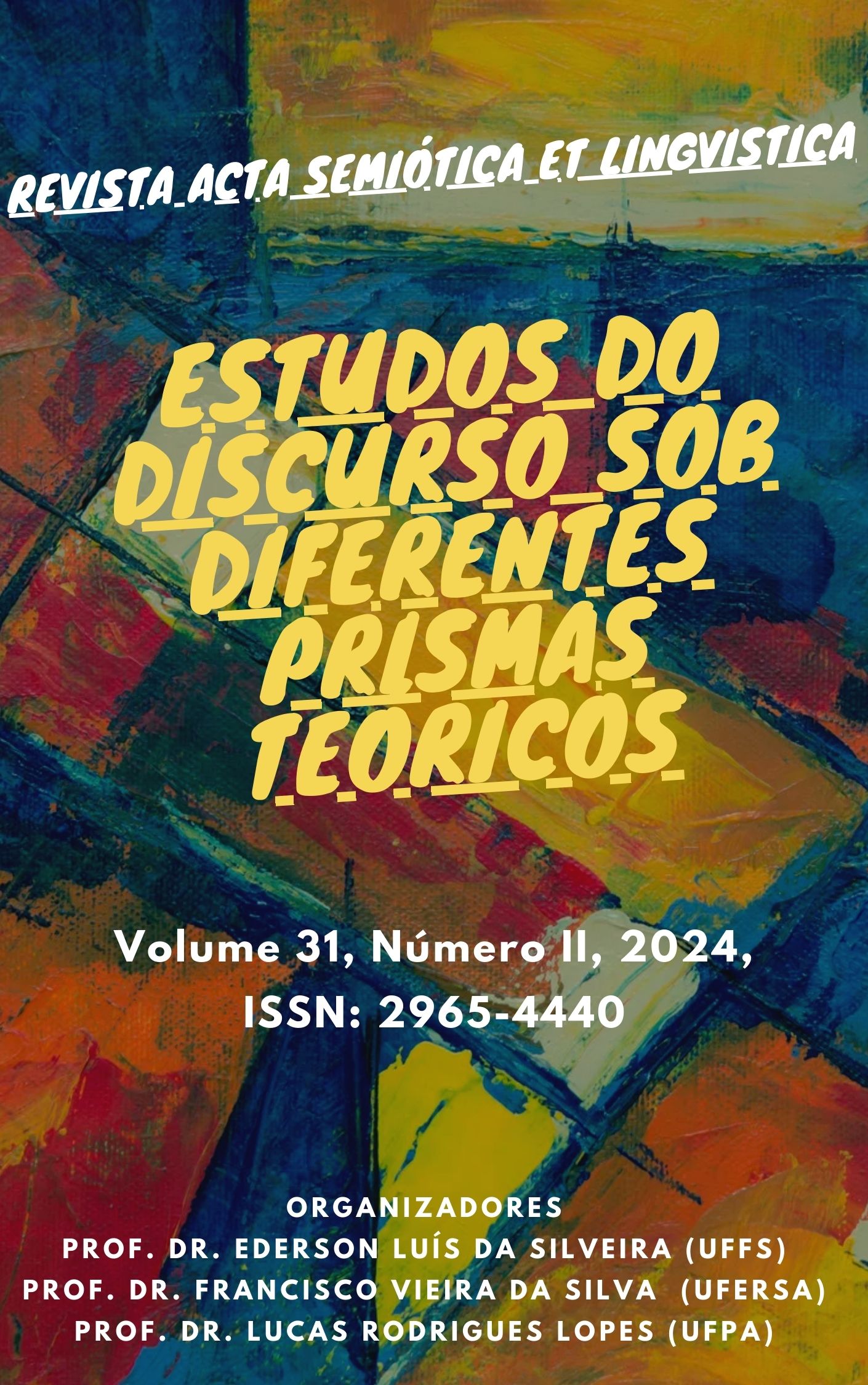EDUCAÇÃO INCLUSIVA X EDUCAÇÃO BILÍNGUE
UMA ANÁLISE DAS RELAÇÕES DE SABER E PODER NA PERSPECTIVA FOUCAULTIANA
DOI:
https://doi.org/10.20873/actasemiticaetlingvistica.v31i2.20401Keywords:
relações de poder, estudos discursivos com Michel FoucaultAbstract
This paper aims to analyze the discursive strategies present in the educational discourse of inclusion regarding the deaf subject, problematizing, above all, the historical conditions that enabled the emergence of such statements in conjunction with the games of knowledge and power. We also intend to show how the bilingual educational discourse emerges by reconfiguring the subject position of the deaf as protagonists of their own history. I highlight the existence of different discourses on the education of the deaf, such as proposals for the organization and distribution of deaf subjects in times and spaces of schools today. Thus, this research is based on the scope of Foucaultian discursive studies, from the archeogenealogical perspective. To constitute the archive of this study, we delimited the collection of the corpus through enunciative excerpts produced in video at a Public Hearing in the Federal Senate, from the Feneis channel on Youtube, on one side a deaf teacher defends the proposal of bilingual education and on the other a hearing teacher who defends inclusive education. The results obtained demonstrate that bilingual education is considered by deaf people as the most appropriate for the development and acquisition of sign language. Furthermore, we can observe in the analyses how power relations crystallize and are intrinsically related to a certain knowledge as a device for controlling the bodies of deaf subjects, be it medical knowledge or educational knowledge, especially the inclusivist proposals that return to the idea of oralism and attempt to “normalize” the deaf in an attempt to correct the incorrigible. However, with the recognition of Libras as a language in 2002, deaf people assumed a place of empowerment and are now reconfiguring their subject positions in society.
References
BRASIL. Lei no 10.436, de 24 de abril de 2002. Dispõe sobre a Língua Brasileira de Sinais – Libras e dá outras providências. In: Diário Oficial da União, n. 79, Seção 1, de 25/4/2002.
______. Decreto no 5.626/05. Regulamenta a Lei no 10.436, que dispõe sobre a Língua Brasileira de Sinais (Libras). 2005.
______. Lei Federal nº 14.191, de 03 de agosto de 2021, que altera a Lei 9.394, de 20 de dezembro de 1996 (Lei de Diretrizes e Bases da Educação Nacional), para dispor sobre a modalidade de educação bilíngue de surdos, 2021.
CAMPELLO, A. R; REZENDE, P. L.F. Em defesa da escola bilíngue para surdos: a história de lutas do movimento surdo brasileiro. Educar em Revista, Curitiba. Edição Especial n. 2/2014, p. 71-92. Editora UFPR.
EAGLETON, T. Teoria da Literatura: uma introdução. Tradução Waltensir Dutra. 5ª. Ed. São Paulo: Martins Fontes, 2003.
FOUCAULT, M. Vigiar e Punir: nascimento da prisão. Trad. Lígia M. Ponde Vassalo. Petrópolis: Vozes, 1987.
______, Michel. A ética do cuidado de si como prática da liberdade. In: Ditos & Escritos V - Ética, Sexualidade, Política. Rio de Janeiro: Forense Universitária, 2004.
______, Michel. Microfísica do Poder. São Paulo. Graal, 2006.
______, Michel. A arqueologia do saber. Tradução de Luiz Felipe Baeta Neves, -7ed. - Rio de Janeiro: Forense Universitária, 2008.
______, Michel. A ordem do discurso: aula inaugural no Collège de France, pronunciada em 2 de dezembro de 1970. Tradução de Laura Fraga de Almeida Sampaio. 24 ed. São Paulo: Edições Loyola, 2014.
______, Michel. História da loucura: na Idade clássica. Trad.: José Teixeira Coelho Neto. São Paulo: Perspectiva: 2017.
FRYDRYCH, L. A K. O estatuto linguístico da língua de sinais: a Libras sob a ótica Saussereana. Porto Alegre, 2013.
GESSER, A. O ouvinte e a surdez: sobre ensinar e aprender a Libras. São Paulo: Parábola, 2012.
LANE, Harlan. A máscara da Benevolência: A comunidade surda amordaçada. Tradução: Cristina Reis. Coleção: Horizontes pedagógicos. Lisboa: Instituto Piaget - divisão editorial, 1992.
PÊCHEUX, Michel. O Papel da memória. In: ACHARD, P. et al. Papel da Memória (NUNES, J.H. Trad e Intrad). Campinas, Pontes, 1999.
PIERRE, Achard. et al. Papel da memória. tradução e introdução José Horta Nunes - Campinas, SP: Pontes, 1999.
PLUTARCO. Obras morales y de costumbres: Moralia I. Madrid: Gredos, 1985.
REZENDE, P. L. F. Implante coclear na constituição dos sujeitos surdos [tese], Florianópolis, 2010.
RESENDE-CURIONE, Patrícia Luiza Ferreira. Escola Bilíngue de Surdos: Comunidade Linguística ou Comunidade Segregada?. Rio de Janeiro. Revista Espaço, INES, n. 57, jan-jun de 2022.
SOUZA, Regina Maria de. Que palavra que te falta? linguística, educação e surdez. São Paulo: Martins Fontes, 1998.
SKLIAR, Carlos (org.). A Surdez: um olhar sobre as diferenças. Porto Alegre: Editora Mediação, 1998.
STROBEL, Karin. As imagens do outro sobre a cultura surda. Florianópolis: Ed. da UFSC, 2008.
STROBEL, Karin. L. Histó







